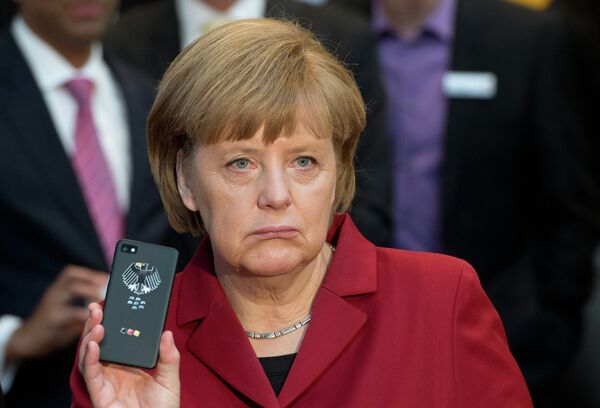There has been a public outcry in Germany over the allegations that the BND had been cooperating with the UK National Security Agency (NSA) in spying on European diplomats and companies, without the legal consent of parliament.

The new law will make it illegal for the BND to spy on other members of the European Union or to engage in economic espionage of any form. It will also establish a new role of a parliamentary overseer of the intelligence agency.
The news comes in the week it was revealed that the BND — with the NSA — had spied on French Foreign Minister Laurent Fabius, the German diplomat Hansjorg Haber, the International Criminal Court, the UN Children's Fund UNICEF and European and American companies.
German government spokeswoman Christiane Wirtz said:
"The duties of the BND do not include political reconnaissance work against partner countries."
Lack of Transparency

This prompted her spokesman Steffen Seibert to say she had phoned US President Barack Obama saying she expected the Americans "to supply information over the possible scale of such eavesdropping practices against Germany and reply to questions that the federal government asked months ago."
It emerged later, however, from sources including former NSA contractor Edward Snowden, that the US embassy in Berlin, overlooking the Reichstag, was being used as a base for a special unit of the CIA and NSA to monitor a large part of mobile phone communications in the government district.
Wait, the BND….spies? I thought only #NSA did that. I'm shocked — #shocked I tell you! https://t.co/9raYVKjzUS
— John Schindler (@20committee) November 8, 2015
Graulich's initial report alleged that the intelligence-sharing agreements between the NSA and BND had been broken and that the extent of the NSA program was much broader than the German Government would allow. Cooperation between the NSA and BND was "neither transparent nor controllable for the German side," he concluded.




